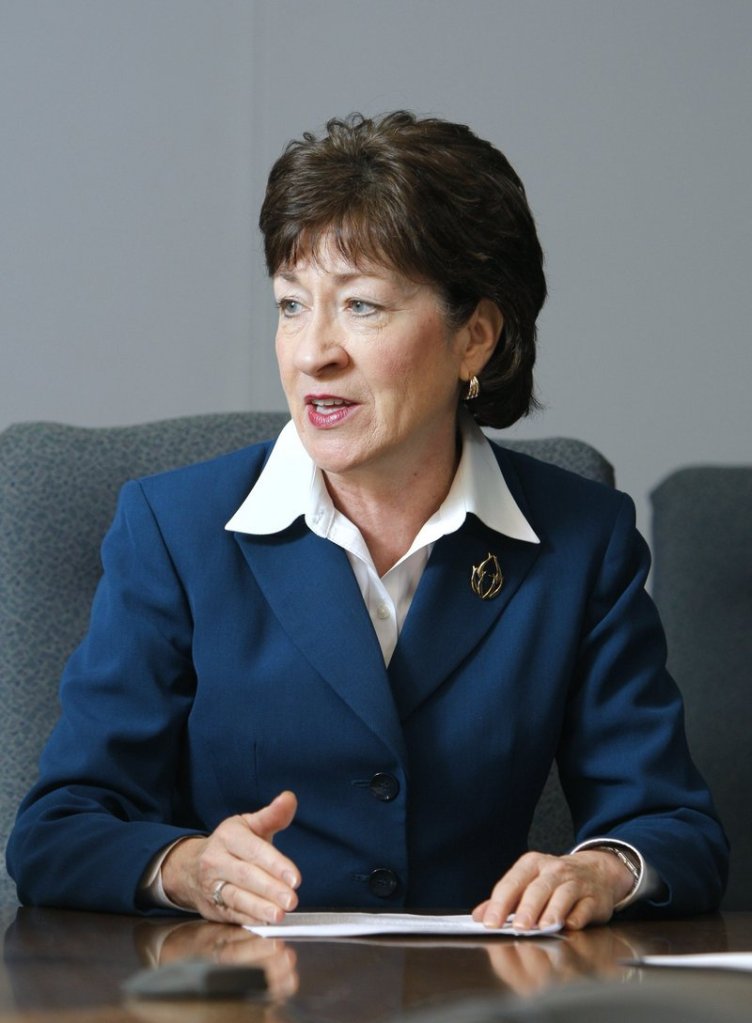AUGUSTA – New oversight, more transparency and greater capital requirements for large financial institutions will make Main Street less vulnerable, U.S. Sens. Olympia Snowe and Susan Collins said Tuesday in interviews with the Kennebec Journal.
Both senators have pledged to join Democrats in voting for an overhaul of the financial regulatory system that’s pending before the U.S. Senate. The House has passed the bill. The Senate is expected to take a final vote this week.
“We’ve learned a lot from what happened, unfortunately, in 2008, and I know there’s a real question as to whether or not this is entirely the solution,” Snowe said Tuesday. “But I do know this: Failing to address the problems that exist as a result of what happened in 2008 could put us at risk.
“We’ve got to start someplace, and this is an important place to start,” Snowe said.
The reforms were crafted in response to the economic collapse that began in 2008 as a result of risky behavior by the nation’s largest banks and investment firms.
Snowe said that throughout the legislative process, she successfully sought to exempt small businesses from regulations aimed at firms considered “too big to fail.”
It was critical to make sure that “small-business interests were protected and not overridden by a regulatory process that really would have had a profound impact on small business and their ability to operate and to function. They shouldn’t be put on a par with financial institutions that brought us to the precipice,” she said.
One of the amendments written by Snowe would allow some small businesses, such as inns and lobstermen, to maintain modified home equity loans that are flexible so they could make larger payments in summer, when business is up, and smaller payments in the winter, when business is scarce.
Another Snowe provision would create a 60-day review process for any federal rule change that might affect small businesses, the same that exists for rules made by the Environmental Protection Agency and the Occupational Safety and Health Administration.
Collins got two key amendments included in the legislation: one would create a council of regulators to identify systemic risks; another would increase capital requirements for large banks, to help prevent the need for further government bailouts.
“A lot of this bill tried to identify what financial institutions should and should not do; I always felt it was more important to make sure they had adequate capital reserves because it’s very difficult to predict what new financial instrument is going to evolve,” Collins said Tuesday. “But if banks have adequate capital, then even during downturns in the economy, and even if they do promote a risky product that is not identified quickly enough by the regulators, they still would have the capital to absorb the losses.”
Sheila Bair, chairman of the Federal Deposit Insurance Corp., wrote a letter to Collins in late June praising her capital-requirement language.
“Your amendment takes aim at the financial engineering that went on in the boom years, and serves as the most concrete and meaningful legislative proposal that I have seen to improve the quality of capital at U.S. banking organizations,” Bair wrote.
Collins and Snowe were critical of the fact that the legislation did not address the government-funded home mortgage giants, Fannie Mae and Freddie Mac.
“They were a major part of the financial collapse, and the taxpayers have been bailing out those two agencies to the tune of billions of dollars,” Collins said. “I supported amendments offered on the floor to extend new regulations to Freddie and Fannie and to reform the way that they work. Unfortunately, those amendments were defeated.”
Snowe said the two firms represent more than 50 percent of the U.S. mortgage market and have received more than $150 billion in taxpayer money to stay afloat.
Send questions/comments to the editors.



